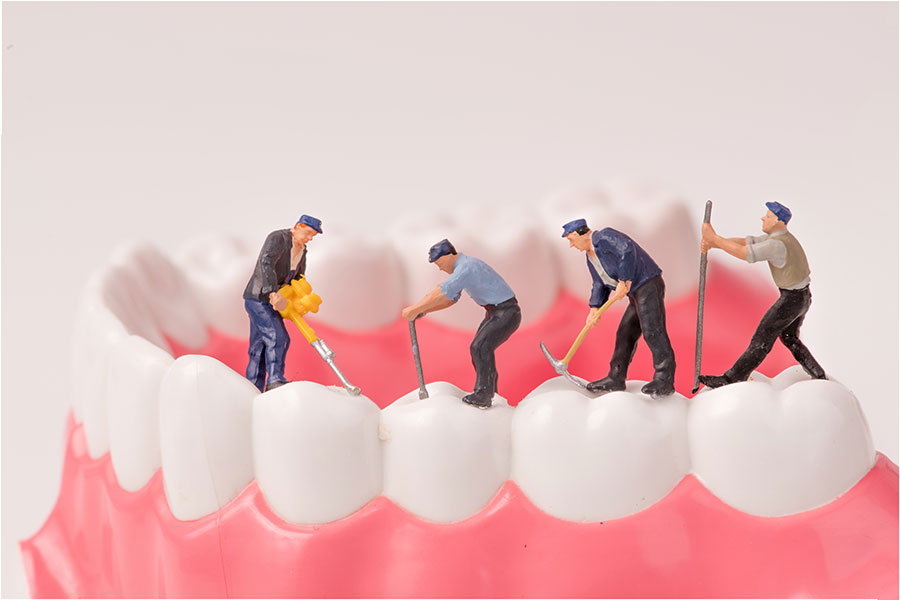Dental implants promise all sorts of benefits to those who receive them. They have the potential to restore oral health, they improve people's speech capabilities, and elevate their existing smile to new heights.
As great as they might be, those who undergo dental implant surgery are not immune to challenges and setbacks. There are times when professionals such as Dr. Suzanne Caudry might have to remove the dental implant.
Why do dental implants sometimes have to be removed? What does the removal process entail, and what follows the removal procedure? We are here to answer these questions and outline the numerous outcomes. Read at your leisure, and do not hesitate to reach out if any questions arise. We are always here to field the concerns of patients and the people in our community.
Dental Implant Failure
Periodontists such as ourselves are quick to flaunt the wonders of dental implants. Made from incredibly strong, bone-like material, dental implants are absolutely not weak substitutes for teeth. With proper care, dental implants have the potential to last longer than our natural teeth. Rest assured, having dental implants does not mean you have to avoid the crunchy foods you have always loved, either. These modern inventions are as durable as can be.
As we have already said, the durability of dental implants does not fend off the possibility of complications. There are times when the dental implant may need to be removed and repaired or replaced.
What Causes Implant Failure?
Your periodontist or dentist might advise you to undergo a dental implant removal procedure for any number of reasons. In most cases, dental implant failure stems from poor dental hygiene practices or infections.
Dental implants might not be natural teeth, but they require the same care and attention as your natural teeth. In fact, the weeks and months following your dental implant surgery might see you investing even more time and energy into your new smile than ever before. The care you put into your teeth during this period will yield returns for years and years to come.
Why the emphasis on oral care? Fresh surgical sites are prone to infection. If an infection occurs around the new implant, the implant may not integrate into the bone. It is instances like these that see oral surgeons removing the implant and performing various procedures to eliminate the infection. Infections don't just stem from improper oral care, either. For immunocompromised individuals with pre-existing medical conditions, they may simply be more susceptible to infections. Such cases require extra vigilance on the part of the periodontist and the patient in question.
Dental implant supported crowns can also chip and crack, much like natural teeth. The supreme durability of dental implants can only protect them from damage for so long. Bicycle accidents, extremely hard foods, and other injuries might leave an individual with a cracked dental implant supported crown. Thankfully, professionals like us are only a phone call away.
Dental Implant Removal: What to Expect
If a periodontist has determined that dental implant removal is the right course of action, they will probably want to act quickly. Chipped and cracked teeth lead to major discomfort and can noticeably alter a person's speech, while infections surrounding compromised implants can spread quite rapidly.
The dental implant removal procedure is not quite the same as the removal of a natural tooth. If the dental implant has already fused itself to the bone, they will use special tools to remove the implant root without compromising any of the existing jaw bone. After removing the root-like structure of the implant from the jaw, your periodontist will do the important work of cleaning the implant site and taking precautions against further infection. The site is usually bone-grafted so a second implant can be placed.
How long does the implant removal process take? Not long. The dental implant removal process takes little time at all. You can count on being in and out of your oral surgeon's facility in as little as ninety minutes or less, depending on your case.
Sedation for Implant Removal
Professionals treat dental implant removal surgery like any other surgery. To us, this means that the patient's comfort ought to be prioritized at every turn. The staff at your periodontal facility will make sure you are comfortable from the moment you enter their offices to the moment you leave the dentist's chair.
As for the sedation, every patient receives adequate levels of sedative during the implant removal process. The sedation ensures you feel no discomfort during the surgery-which benefits both yourself and the periodontist overseeing the removal process.
While there is the option for unconscious sedation, most patients feel comfortable enough with conscious sedation. One of the benefits of conscious sedation is that individuals can leave the facility without the lingering effects that accompany unconscious sedation. However, you must be accompanied home.
Implant Removal and its Aftermath
The post-surgical period of dental implant removal differs from patient to patient. Your periodontist will provide you with all the information you need to properly care for the surgical site after surgery. With any luck, you will be more than ready for the next stage of your journey.
Learn More About Dental Implants Today
There is no end to the wealth of information on dental implants. That said, some of it can be quite hard to sift through. This might leave you with more questions about dental implant surgery, implant rescue, replacement, and removal. Thankfully, we are always just a phone call away.
Feel free to browse our other blog posts or the rich, informative content on our website-and don't hesitate to contact us whenever you have a question or concern. Fielding the concerns of people in our community is just part of our job.
Call (416) 928-3444 to speak with our remarkable staff.

